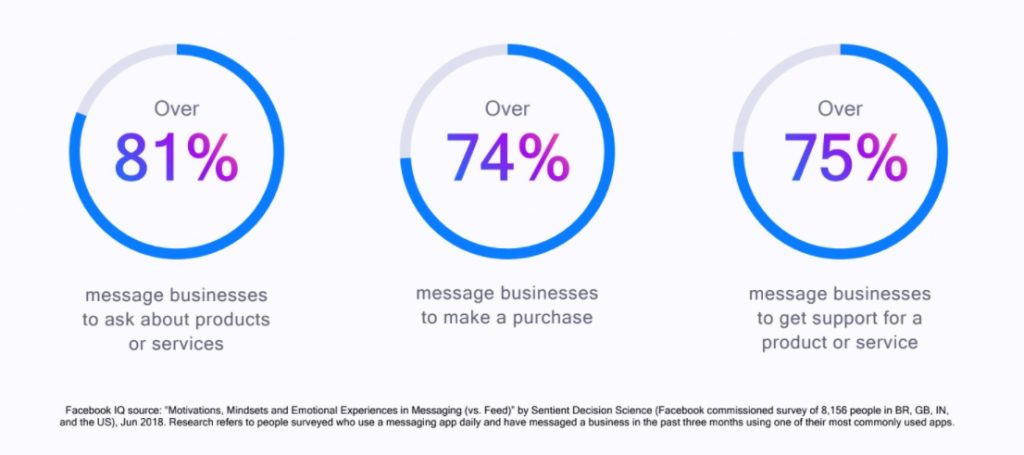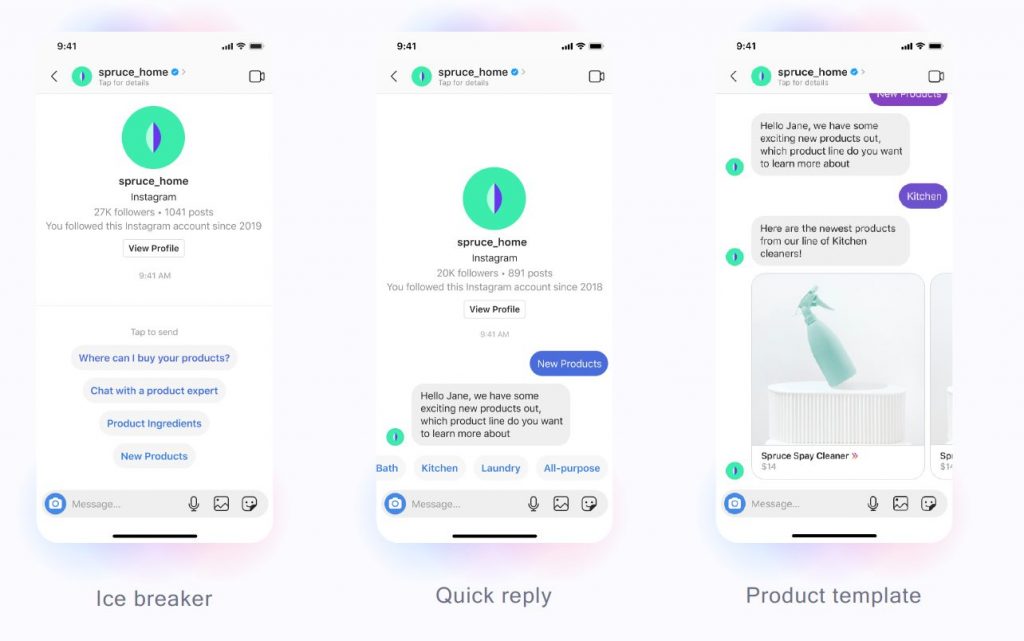If you are an e-commerce business owner, the pandemic has probably strengthened your relationship with customers on social media. No matter if you’re a relatively small retail business selling handmade items or a growing one with multiple product categories, you will, at some point, need support navigating these conversations. Here are some things that might help.
How to Manage Social Media Conversations at Scale:
The distance between businesses and customers is shrinking
And it’s been going on for a while now. When the world got locked down in early 2020, this process has only gotten faster and more intense. And as an e-commerce seller, you’ve probably felt that yourself.
The changes took place on both sides. Customer service teams and business owners often started working and connecting with customers from home instead of from busy call centers. And customers on the other end of the line took to social media even more as businesses became more and more available online.
And the results?
In a Facebook survey conducted in September 2020, 67% of people said they prefer to message a business on social media when they need to contact them now more than before the pandemic. (Source: The Harris Poll September 2020 online survey of the U.S., Germany, the UK, India, Mexico, Brazil, and Indonesia, commissioned by Facebook and conducted among 8,214 adults ages 18 and older.) It has actual business implications, with 7 in 10 people being more likely to buy from a company they can message on social media or text.
On the other hand, the pandemic has improved the quality of customer service for many businesses, underlining its importance, not only as a market differentiator, but also simply as a must for any successful e-commerce business.
But to step up and match the expectations of today’s consumers, an e-commerce seller needs the right tools and tactics. Especially as businesses scale, with more products on offer, more customers across different markets (and time zones), and more conversations happening on social media.
This guide focuses on managing customer conversations at scale as your business grows on your way to becoming a business customers are delighted to buy from.
Instant messaging: the way to quickly connect with customers
Being able to message a business you’re buying from and get a quick reply has become a requirement for many customers. And it’s no wonder – we want to stay up to date about our orders and contact the seller with questions or in case of problems. And we want it now.
Resorting back to data from Facebook, 63% of people across generations prefer to message than call or email, and the numbers keep growing. A little less – 57% – think messaging feels more personal than calling. (Plus, let’s face it, it’s a little different waiting for a Messenger reply than it is being stuck on hold with the phone in your hand, listening to canned music while waiting for someone to take your call.)
Customers today simply want to contact businesses just like they’re reaching their friends. Instantly and fuss-free.
When you look at why people message businesses, these are the main reasons:
- They ask about products and services (over 81%)
- They message to buy a product (over 74%)
- They need customer support after the purchase (over 75%)

Source: Messenger from Facebook’s
That’s why being there for your customers – e.g., using Facebook Messenger and direct messages on Instagram – is a must. Especially if you’re actively selling things on these platforms. Because then, people will expect to be able to contact you there even more.
Here’s how you can get your business ready
You can do several things to make Facebook and Instagram messaging an integral part of your customer service workflows. And most of all, to make supporting your customers this way more manageable as your business grows – and as your customers expect timely responses to their queries.
- Use a social media management platform to route all your social media conversations to one dashboard. It’s a must when you’re an e-commerce seller, especially as you’re scaling your business and selling more products.
This way, you’re going to see all inquiries and message threads in one place and will be able to delegate them to your customer service team members, with everyone keeping track of what’s going on.
It's so much easier than checking your social media inboxes one by one on each profile, switching to your mobile for Instagram. Which also makes managing this in a team virtually impossible.
If you’re actively selling on Instagram, you can now use Instagram direct messages with some social media management platforms to aggregate all conversations in one place. It's a game-changer for any business that’s been struggling to keep up with the different inboxes in the Instagram app, talking to customers and influencers, and missing tons of messages in between.
Respond and resolve inquiries without redirecting your customers to other channels. There are few things as annoying as contacting customer service only to be told you need to contact them somewhere else.
With the tools platforms like Facebook and Instagram give businesses today and external ones that connect different channels into integral customer service hubs, there’s no need to have customers jump through hoops to reach you. Nor is this a good practice for any customer service.
- Automate. Facebook Messenger provides you with many options to use instant messaging both on Facebook and Instagram, for example, during pre-purchase product discovery or post-purchase customer support:
- Icebreakers to help people initiate a conversation and get answers to the most common questions
- Quick automated replies before you’re connecting to a customer service agent to reduce the strain on your team
- Product templates providing direct product links for purchase in response to a question from a customer

Source: Messenger from Facebook’s
All while considerably reducing the time it takes to respond, streamlining workflows for you and your team, and improving the customer experience.
Organic conversations in your feed
As much as customers take to messaging, some will still engage in conversations on your page or posts that mention your brand. These, too, are the sales and customer service opportunities you shouldn’t miss. Especially when an issue arises that starts catching on (any business has slip-ups, but with social media, they can often get quickly blown out of proportion or go viral.)
Now, these can get even trickier to manage – as people will join conversations under different posts, about different products, or on various social media profiles you’re running.
Even if these don’t directly impact sales, these conversations can impact your brand reputation. And, contrary to what happens in a direct message, they’re out in public. So one delivery gone awry – and a disappointed customer possibly missed on social – can cost your business actual sales in the long run.
Here’s how you can get your business ready
As with any social media interaction, again, using a social media management platform that aggregates all your channels is a must for a business that’s scaling up. And it gives you additional possibilities.
A major one is automating responses to frequently asked product questions.
If your customers keep asking about a particular product or its price, you can save some time by automating your responses. Especially as you grow, and these questions become more and more common while your team’s getting busier and busier.
Automating comments in social media has a bad rap – but as more and more sales moves online and to social media, it’s high time to leave that behind. But of course, you need to be wise about it.
So create auto-replies for those Facebook posts that you know will be easy to answer with an automated message. Carefully analyze the keywords and phrases people use to ask about prices or product features. Then write replies that sound like actual humans responding (it’s not like a robot writes them, after all) and resolve the initial question while constituting that first touch for your customers.
Is your business expanding to different markets? Set up auto-replies to respond to questions asked by customers in different time zones if your customer service agents are located just in one. You can also do this for outside of your working hours to manage your customers’ expectations and let them know when they’ll hear from you.
And what about conversations under your Facebook and Instagram ads?
Now, that’s a big one and – historically – a tough one for businesses to resolve.
If you’ve ever run dozens of product campaigns selling your products on Facebook, you’ll know that what happens in ad comments is especially problematic. Because there’s no easy way to track it within Facebook. Plus, people who run campaigns for e-commerce businesses are often not in charge of moderating the comments. Consequently, sometimes it’s just uncharted territory.
Which is especially common with larger businesses, who’ve long passed the one-social-media-person-band phase.
There are several problems you can encounter with managing comments for Facebook ads:
- People are going to ask questions about the product below your Facebook sponsored posts. Maybe they’ll want to know if an item is true to size. Maybe they need some more info on the price because there are many variations. Or maybe it’s out of stock when they see the ad, and they want to know when it’s coming back.
- If you’re not answering these questions, your competitors might – with links to their sites and products. Besides, you don’t want to pay for ads promoting your competition with a link in the comments.
But nor do you want unanswered questions displayed to thousands of new viewers, showing your lack of interest in your customers (even if you didn’t see them). Not to mention, they’re often simply missed sales opportunities.
- And of course, social media is not all butterflies and rainbows (or, most of it isn’t), and the ads you’re spending your budgets on will attract spam. Which, if you don’t remove it, will be seen by your prospects and mess with your brand reputation (and, might also affect your sales.)
Here’s how you can get your business ready
First of all, find an external tool that can support you in managing Facebook ads comments: responding quickly to customer inquiries (and boosting engagement while also providing excellent customer service), removing spam, and hiding competitors’ links. And ultimately, no longer burning your Facebook ad budget.
If you happen to have a large volume of comments on your Facebook and Instagram ads, automating your responses, again, is a good idea. A social media management platform that has capabilities to deal with Facebook ad moderation can help you:
- Automatically hide competitor links
- Automatically delete spam
- Automatically answer frequently asked questions, like the ones about pricing or back-in-stock updates
Plus, being able to see comments under your Facebook and Instagram ads along with all your other customer conversations – and without actively fishing for them in your ad campaign interface yourself – is priceless.
Especially when you’re advertising dozens, or maybe hundreds of products at the same time, with multiple ad variants targeting different customer segments. At some point, it becomes virtually impossible (and counterproductive) to do it without an external tool to support you.
The way you handle customer conversations WILL impact your sales
The real problem is how to manage them as their volume increases because you’re selling more and more products (which, of course, is a good thing.)
You can grow your social media customer service team, but they’ll need support too to do their job effectively and efficiently. Finding more tools to support them at scale is always a good idea.




